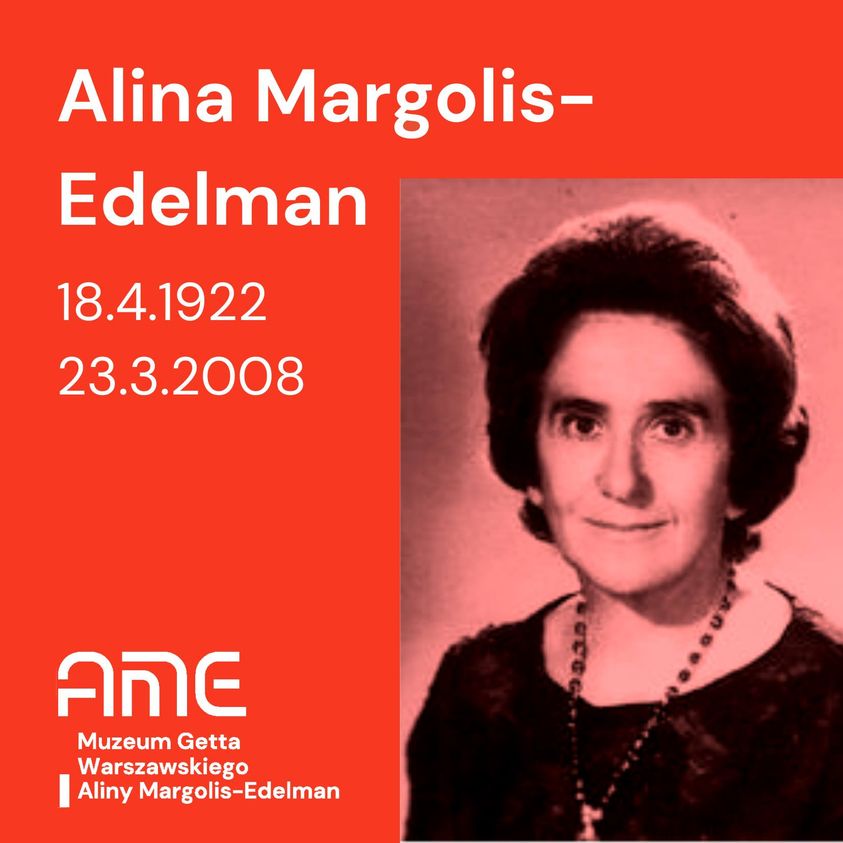Alina Margolis-Edelman (18.04.1922–22.03.2008)
doctor and social activist, an activist to protect the lives of children in armed conflicts

Margolis Edelman was born in Łódź to a family of assimilated Jewish doctors. She was the basis of the character of Ali from ‘Primer’ by Marian Falski, a friend of her parents.
During World War II, she found herself in the Warsaw Ghetto, where she attended the Jewish School of Nurses run by Luba Blum-Bielicka. She came to the ‘Aryan’ side in 1943 after the January liquidation action. During the Warsaw Uprising, she was a nurse in the hospital on Miodowa Street, for which she was awarded the Cross of Valor. In November 1944, in the alleged convoy of the Red Cross, she led the Żobowców hiding from the basement on Promyka Street, among whom was Marek Edelman, her future husband.
After the war, she completed medical studies in Łódź. She worked as a pediatrician, also conducting research activities. She was the founder of a clinic for children with kidney diseases and of a center for the treatment of childhood diabetes in Rabka. After the events of March 1968 and the unleashed anti-Semitic campaign, she was not allowed to continue her academic work, with her habilitation thesis on the theory of types of diabetes being rejected.
In 1970, she and her children immigrated to France, where she worked as a doctor specializing in helping abused children. She was a co-founder of the Doctors of the World organization, on behalf of which she was sent on medical missions to a number of countries around the world. She was also a co-founder of the French-Polish association SOS Aide aux Malades Polonais (Help the Ill in Poland), dealing with the treatment of incurable people abroad in Poland, as well as organizing professional internships for Polish doctors and financial aid for Polish hospitals.
During Poland’s period of martial law, she assisted the Solidarity opposition from France. She chaired the Association Cahiers Littéraires, the first publisher of the quarterly ‘Zeszyty Literackie’. After 1989, she opened the Social Initiative Aid Office in Poland, and in 1991 she founded the Nobody’s Children Foundation (now the Empowering Children Foundation), helping abused children.
She died in Paris, and is buried in the Jewish section of the cemetary in Bagneux. She is also commemorated at her husband’s grave at the Jewish cemetery in Okopowa Street in Warsaw. Since 2011, people helping abused children have been awarded the Alina Margolis-Edelman.
translated by Adam Grossman

